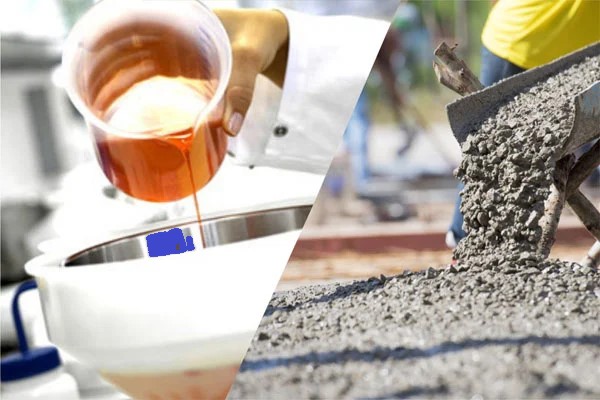
- by
- Industrial
What Are Construction Chemicals? – Explained In A Nutshell
Introduction
Construction work may seem simple in bare human eyes, but it is quite a complex process. A lot of things go into the modern era constructions, and construction chemicals are an integral part of that list.
Buildings, roads, bridges, airports, metro transits, you may name anything; behind the constructions of those, chemicals played a vital part. They are used to provide the structure with strength, durability, workability etc.
So, what are construction chemicals, and why are they used, you may ask. To cater to your query, we have tried to explain construction chemicals and their use case scenarios in brief.
So, let’s get started, shall we?
What Are Construction Chemicals?
If it is not obvious from the name itself, construction chemicals are the chemicals used in construction activities. In the field of construction, there has a wide functional possibility.
These chemicals can help to enhance the quality of the concrete structure by strengthening the molecular bonds. Moreover, they add water-tightness to the concrete and protect structures from environmental damage.
Construction chemicals are of many kinds. But as per their uses, they can be categorised into four different types: (1) Concrete admixtures, (2) Adhesives and sealants, (3) Asphalt modifiers, and (4) Protective coatings.
Uses of Construction Chemicals
Australia has an industry of construction chemicals worth 360 billion USD. That shows how large the consumer base of these products is. You cannot think of a construction project except the required chemicals.
Construction chemicals have diverse use scenarios. It can be used solely focusing on achieving one particular goal like waterproofing or, working with other compounds to cater to a collective goal such as improving durability, workability etc.
For your better understanding, here goes all the information on the uses of construction chemicals.
Concrete Admixtures
Concrete is the most common material that is being used to make structures for a long time. However, just concrete does not facilitate the need for quality, strength and durability sometimes.
That is where construction chemicals come into play. Concrete admixture chemicals change the properties of concrete in a certain way to satisfy the requirement.
There are plenty of admixtures available to choose from. Plasticiser, superplasticiser, mineral admixtures, gas-forming admixtures, bonding admixtures etc. are some of the popular ones.
Waterproofing
Damp is something that everyone hates. So, people tend to take waterproofing very seriously. It should not be much of a surprise that you would need chemicals of some sort to achieve that.
Chemicals that help to fill the pores in the concrete comes in different forms. They can be in form of powder, paste or liquid. Usually, you need to coat the concrete which a solution of these chemicals to make it waterproof.
Silicate of soda, zinc and aluminium sulphates are the chief agents of construction chemicals that are used for waterproofing.
Joint Sealant
Joints are always very tricky when it comes to constriction works. They are considered as the more fragile parts. So, bonding between two parts of concrete needs to be solid and sealed.
Chemicals that have polymer bonding agents in them are used in these scenarios to improve the quilty of bonds in joints. It boosts the strength of the structure and keeps it solid.
Concrete Repair
Concrete surfaces get damaged over time. They get peeled off, chipped off or pitted down. Repairing the concrete becomes a no brainer at those crucial times.
To repair the surface effectively in those cases, construction chemicals are the best option you can opt for. There adhere to the old concrete very firmly and even improve the bonding. Chemicals used in repairing are usually stronger than the actual concrete and they harden relatively fast.
Grout and Anchor
In every construction work, grouting needs some extra attention. Especially, grouting in the anchoring and bolting system. To grout properly, use of different types of construction chemicals is a very common thing.
The use of high-grade chemicals in the anchors fills up existing small cracks and make the bond stronger. In areas where shrinkage is expected, non-shirk grout chemicals can come in handy.
Grouting the space between blocks and tiles with these chemicals is also a popular practice as makes the surface seamless.
Surface Treatment
Chips and holes on concrete surfaces such as the floor, wall etc. are a common phenomenon. They also turn rough over time. Many chemicals available in the market take care of these problems very easily.
To fill up chips and holes fast, quick hardening chemicals compounds are the top choice. They can harden within 15 mins and reestablish the previous smooth and seamless state very quickly.
Flooring
Construction chemicals are used for two different purposes when it comes to flooring. They can be used as floor hardener as well as protective and decorative compound.
Hardeners contain systematically graded emery powder or carborundum which is mixed with cement to create a wear-resistant flooring.
We also see the use of some acrylic based waterproof coating chemical that stops the carbonation process to give the floor a decorative look.
Tiling
Tile adhesive is a must-have element when it comes to tiling a surface. They pack more strength than cement. If it is not clear yet, they are made from high-grade construction chemicals as well.
Consisting of latex, epoxy, acrylic etc., tile adhesive is a polymer-modified cement-based solution to eliminate gas and water beneath the tiles. Latex in the adhesive makes flexible as well so that tiles could move a bit where movement is required.
Conclusion
Construction chemicals are a very common thing when it comes to any type of residential, commercial or industrial construction process. You can not think of completing construction works perfectly without using chemicals.
So, that is a wrap for today. Now that you know what are construction chemicals and their uses, we hope you will be able to incorporate this knowledge in your future works.
Let us know if you think we have missed out on anything. We, here at Reliance Chemicals Australia, always appreciate your feedback.

